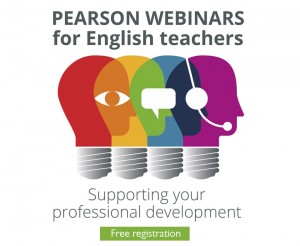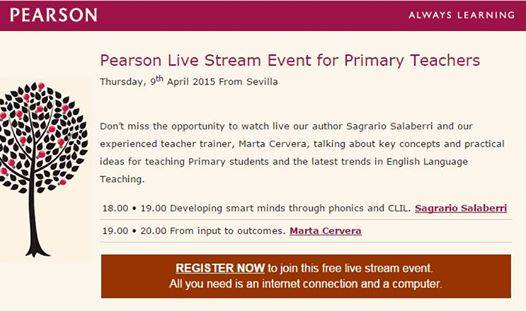Workshops with children are great. I love them.
I have realised that after being away from the class for quite a long time, you start to talk and think too theoretically and idealistically.
Children bring us back down to earth, back to class, a place where you need to find the perfect balance between theory, trends and reality, where emotions and relationships are as important as the latest trends in education.
Why am I saying this? Because we have created what we call “A class with your class”. The principal aim of this activity is to offer teachers a “live teacher training” . We conduct a class for the students, (we request the presence of the English teacher) and a meeting with the teachers afterwards to talk and reflect about what we have done as well as to complement the session with resources and more ideas.
Let’s have an example. We did this in A Coruña, in the International School Eiris, a great school that is now facing the challenge of implementing the use of tablets in their classes, so, we decided to deliver a QR code workshop for students and a training session to the teachers focused on digital competence in the English class.
Why QR codes? When we talk about literacy, we have to be aware that in a technological society, this concept is expanding to include the media and electronic text, in addition to the alphabet and number systems. Our students need to learn how to read images, how to read multimedia, how to read the web, and how to read anything that can give them information. QR codes are just another way to get or to offer information.
In this session we explained to the children the QR code concept, we practiced with QR codes, we created QR codes and we reflected afterwards about how we can apply it to our daily activities.
Here you have the presentation.
Another session is called 20-2-GO.
20-2-GO, is a collaborative contest that measures children’s reading comprehension in a fun way. Here you have the presentation where the rules are explained. You can use it for so many different purposes in your daily routines just by changing the questions. The counter works only in presentation mode and its duration can be adjusted to your necessities.
Here you can read a review of the activity written by a teacher after one of the workshops, thank you Salva!
http://www.slideshare.net/slideshow/embed_code/31910906





 ESO: Next move talk
ESO: Next move talk What constitutes a meaningful speaking activity for an adult and can blended learning help them improve in a task-based setting? At the end of this weekend I will be participating in the
What constitutes a meaningful speaking activity for an adult and can blended learning help them improve in a task-based setting? At the end of this weekend I will be participating in the  This month I have been sharing perspectives, comments and knowledge about ESL Writing with teachers in Catalunya. The Department of Education of the Generalitat invited us to participate in
This month I have been sharing perspectives, comments and knowledge about ESL Writing with teachers in Catalunya. The Department of Education of the Generalitat invited us to participate in 